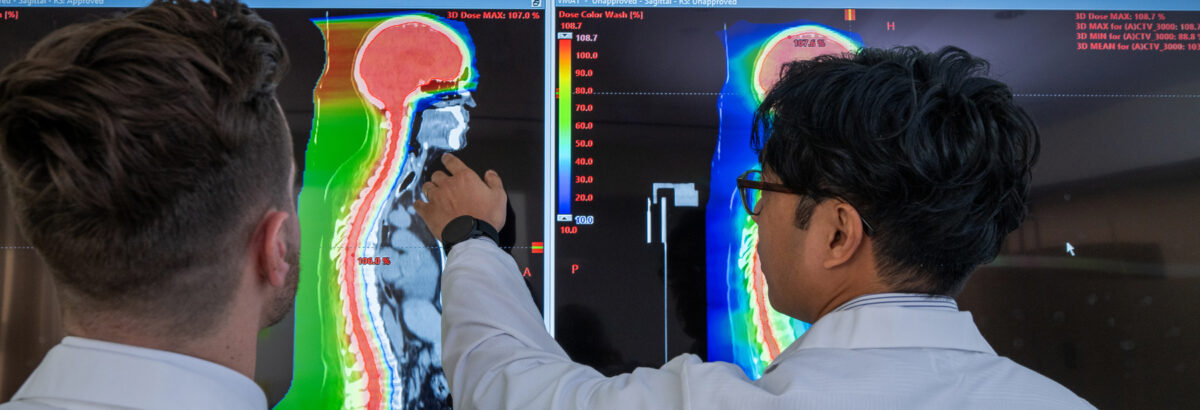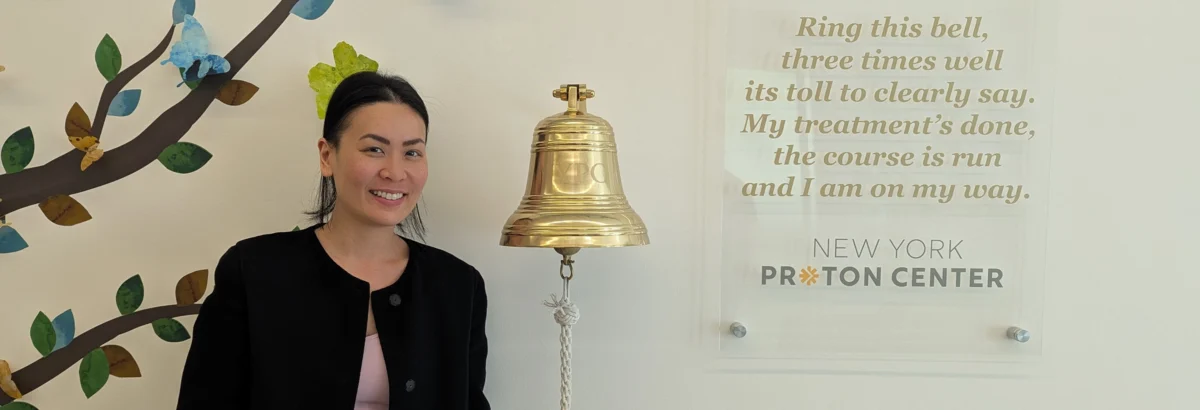Liver Cancer Treatment at NYPC: An Interview with Dr. Arpit Chhabra
How did you come to practice radiation oncology and, ultimately, proton therapy?
I come from a family of physicians, including oncologists, so I had a natural awareness and interest in it from a very young age. What particularly interested me in radiation oncology, as compared to other oncologic subspecialties, was the ability to develop deep, meaningful relationships with patients given their daily radiation therapy schedules coupled with the rapid technologic innovation in this field.
As for my introduction to proton radiation therapy specifically, I happened upon it serendipitously. While completing my residency training at the University of Maryland, their proton center was just getting off the ground. Proton therapy was novel to me at the time, so I was intrigued and, therefore, decided to stay on board for an additional year to complete further dedicated fellowship training in proton therapy. This is where I met Dr. Charles Simone, my fellowship director at the time and current colleague at the New York Proton Center (NYPC). In my current clinical practice at NYPC, I treat gastrointestinal (GI) malignancies, including liver cancers.
How did you find the New York Proton Center?
After my residency training and proton therapy fellowship, I practiced general radiation oncology in Connecticut. It was during this tenure that I further realized the true value of proton therapy – there were many patients I cared for whom I wished we could have offered proton therapy, but we just did not have that advanced resource at our disposal.
With that, I wanted to get back into the world of proton therapy and, given my prior relationship with Dr. Simone, reached back out to him. That was around the time NYPC was first coming online. The timing was perfect because an opportunity had opened at NYPC, and I jumped at the chance.
What do you enjoy most about your work?
One of the many things that I love about this job is the people that I work with. I’m amazed at how impressive everyone here is from both a personal and professional standpoint. I really don’t think of this as work; it’s a community and a way of life. I really enjoy coming to NYPC every day and taking care of patients, and equally as much doing so alongside colleagues and friends who are the best in their field and a real pleasure to spend time with.
What makes the New York Proton Center unique?
For me, it’s knowing that you’re offering something that other cancer treatment centers in this region cannot offer. There is so much intrinsic value in that – that you’re able to do something for patients that wasn’t available in New York State just two years ago. I believe that the unique physical properties of proton therapy lend themselves to be an excellent cancer treatment for the appropriate subset of patients.
It’s kind of incredible to be at the forefront of this innovation in precision cancer care in one of the most important healthcare markets in the world; you can feel the energy when you walk through the doors.
Can you talk through some of the risk factors for liver cancers and what types of doctors you should be seeing if you’re at risk?
Cancers that start in the liver, known as primary liver cancers, include hepatocellular cancer, by far the most common, and bile duct cancer. Major risk factors for primary liver tumors are cirrhosis and chronic liver disease, that can be due to viral infections, such as hepatitis, chronic alcohol consumption, or conditions such as non-alcoholic fatty liver disease.
If you have cirrhosis or other underlying risk factors for primary liver cancer, you will likely be referred to a hepatologist, a liver specialist with experience in cancer screening, which generally includes blood tests and imaging tests like ultrasound. The purpose of screening is to identify the cancer early enough so that it is associated with more favorable outcomes.
Ultimately, if you are diagnosed with a primary liver cancer, evaluation of treatment options requires a team-based approach of multiple specialties, including hepatologists, surgeons, medical oncologists, interventional radiologists, and radiation oncologists. This includes an assessment of whether the cancer has spread to an advanced stage or is locally confined. For locally confined tumors, surgery is the gold standard in terms of partial liver removal or transplant. However, sometimes surgery is not an option, in which case other local therapies are considered.
What if surgery is not an option?
Many patients who are diagnosed with primary liver tumors are not considered surgical candidates. For these cases, other local therapies are considered. They include ablation to heat or freeze the cancer cells, embolization to block blood flow to the tumor, and external radiation such as proton therapy.
Which of these local therapies to utilize takes into account several factors, including underlying liver health, tumor size, and tumor location. There is growing and robust evidence that external radiation therapy, and especially proton therapy, can provide excellent long-term tumor control and survival, including in situations where other local therapies are contraindicated.
Why proton therapy?
When managing liver tumors, it is imperative that in addition to achieving high rates of tumor control, the risk of side effects is minimized. Proton therapy is a more precise form of external radiation therapy that avoids unnecessary radiation to healthy tissues, such as the normal uninvolved parts of the liver. Protons can spare as much of the liver as possible, more so than with traditional X-ray radiation.
Clinical investigations studying proton vs. X-ray radiation therapy have confirmed lower rates of complications with proton therapy, with early data showing this can translate into improved survival with proton therapy. Further ongoing clinical trials, including those open at NYPC, are further studying these benefits of proton therapy.



